Characters in The Odyssey could probably appreciate Josh Lanthier-Welch’s path. The co-founder of OnoPops grew up in Hawaii and set sail for University of California, Berkeley, where he earned a degree in English Literature and Studio Art. From there, it was off to New York to earn a Master’s in Screenwriting from Columbia University. Leading up to OnoPops, he returned to California, working in the video game industry, clocking time at restaurants like Absinthe and Boulevard, and helping to lead an underground supper club called Ghetto Gourmet. Brother Joe called him home to co-found a “farm to stick” popsicle concept that relies on a locavore ethos and a connection to Hawaiian land. Lanthier-Welch shared culinary and cultural insights at Hawaii Food & Wine Fest’s Enter the Modern Dragon event.
Josh Lurie: What does a popsicle have to be for you to make it?
Josh Lanthier-Welch: It has to be local. One of the main focuses of this company was to do a locavore product that puts a happy face on the locavore movement. You tell a lot of local people that if you eat local, they can’t have rice or soy sauce, the first thing they tell you is to screw off. Really, to make the locavore movement appealing, you have to let the local people know that there are foods they like to eat that are 100% local. This is one of the only states in the Union where they grow vanilla, chocolate, ginger, and we get 100% local dairy. You can get 100% local sugar. Only in California, Florida and Hawaii can you have a 100% local source of cane sugar. We’re lucky to have raw, evaporated cane. I like to tell people, raw cane is a juice that comes from a grass. Refined sugar is the devil, but raw cane is actually pretty good for you. It’s got Vitamin A and thiamin and iron in it. You should not keep it from your children.
That was another purpose of this, to do a product that parents could feel good about feeding their kids that was still decadent and indulgent, but still made of really good stuff.
JL: What’s your favorite part about working with OnoPops, as opposed to restaurants?
JLW: I have to be completely frank and say I do miss meat and veg so much. There’s only so much fruit and sugar a chef can take. We throw fabulous dinner parties to try to release the pressure on that valve. My favorite part about doing it is going to the farmers market and connecting with the people, telling them that what we’re doing is legit, that this is really a product made on the islands. Hopefully it’s going to improve food sustainability and food security one popsicle at a time.
JL: What’s the biggest challenge about running your company?
JLW: Making money with this commitment to locavore. My food costs are five times what they would be if we were using schwag ingredients. Buying 100% local is at least a 5x multiplier to food cost. The customer has to understand the added value of what you’re doing, or why are you doing it. For us, the biggest challenge is messaging to make sure the market does know how righteous and legit we are.
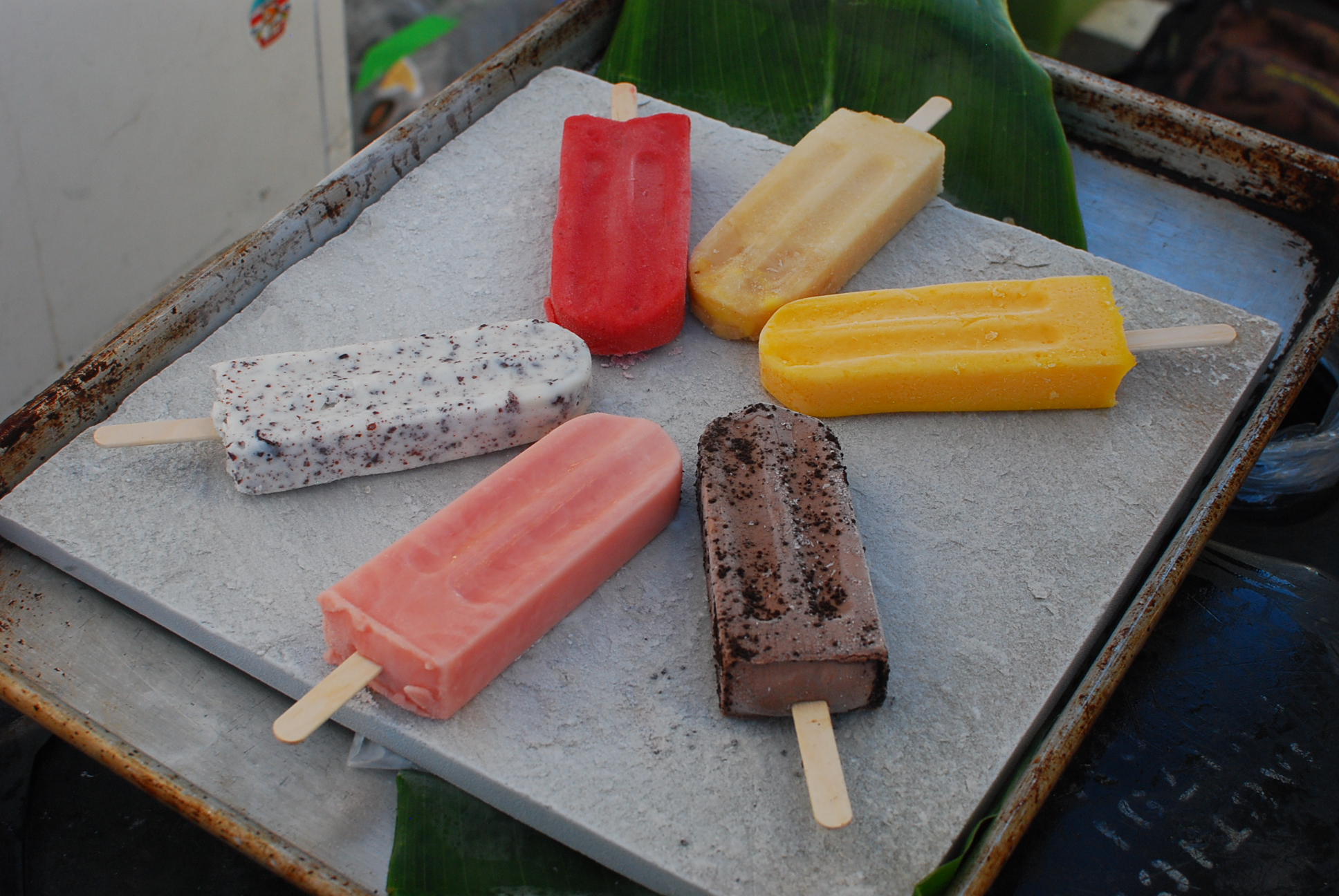
JL: At what point did focusing on local become important to you?
JLW: It really did change from my exposure to it as a foodie and chef in the Bay Area, where you go to farmers markets and there would be little old ladies who’d get out their protractor and say, “Is your farm within 50 miles of here?” It’s like, “Lady, the San Joaquin Valley is within 50 miles of here. 80% of the food for the entire country comes from there. I’d just want to backhand her. When you get to Hawaii, that whole protractor little old lady thing vanishes into the mist, and you have this suddenly real prime directive: we live on an island. When that last maxi-liner comes and people are killing themselves over rolls of toilet paper, it’s going to be so important that this island can sustain the people living on it with food from here. It’s a much more high stakes issue about food sustainability, the locavore movement and food security. It woke me up out of my cynical apathy as a mainland foodie. I went back to my hometown and realized, the locavore thing here is an essential, pivotal point about how the future of this whole state is going to go. You’ve got me fired up.
JL: Do you have such a thing as a signature OnoPop?
JLW: Yes. Some of our core flavors are ume-Thai basil, our Kula strawberry and Maui goat cheese. Those are combinations. Our dark chocolate-Chinese five spice. Those are flavors we had when we first launched the label and we only had eight flavors. We’ve done over 70 flavors today. Those are the flavors that most people associated with us, that you can most find at the supermarkets. But we never stop growing, we never stop evolving. Three flavors were developed especially for this event, and we’re always looking to work with new farms, new farmers, new crops to promote the flavors that are coming out of the ‘aina here on Hawaii.
We just did dragon fruit for the first time. I had always been of the opinion that dragon fruit had no flavor, but someone turned me on to some local ones that were really ripe and really beautiful. I did a dragon fruit-chamomile sorbet. That was a really great combination, floral on floral. They didn’t overpower each other. It was excellent.
JL: Maui goat cheese, was that Surfing Goat?
JLW: Surfing Goat Dairy on Omaopio.
JL: I was just there three days ago.
JLW: Excellent. Kula berry farm and Surfing Goat Dairy are about four miles away from each other. It’s an all Upcountry flavor, grown in the same soil.

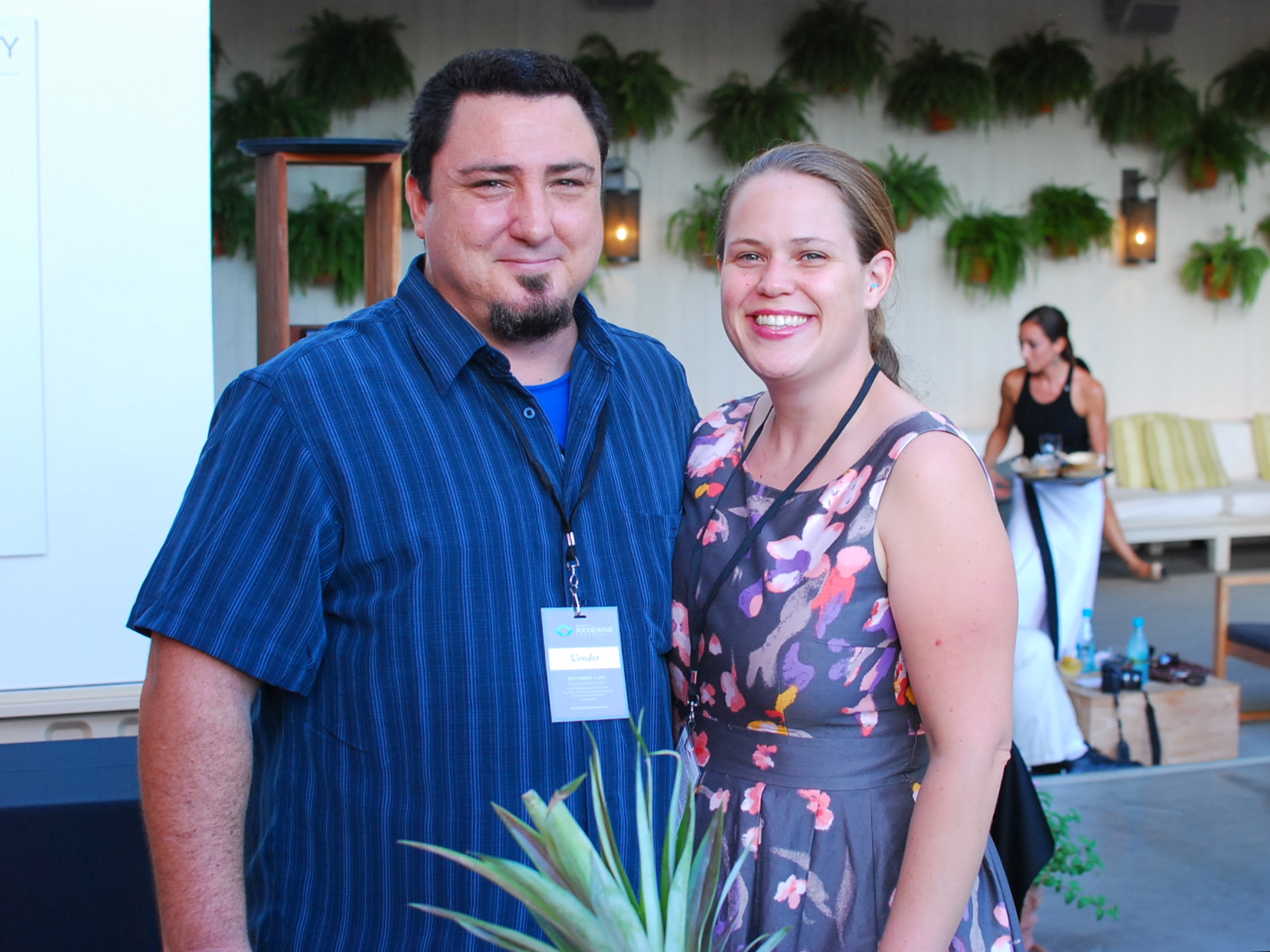
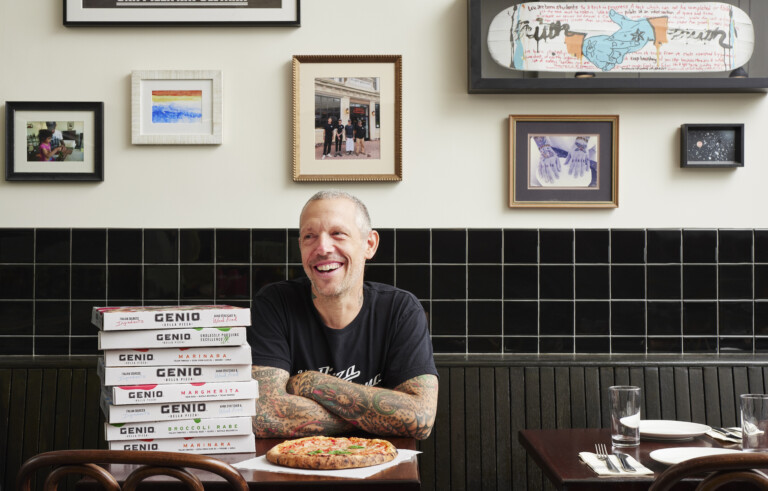
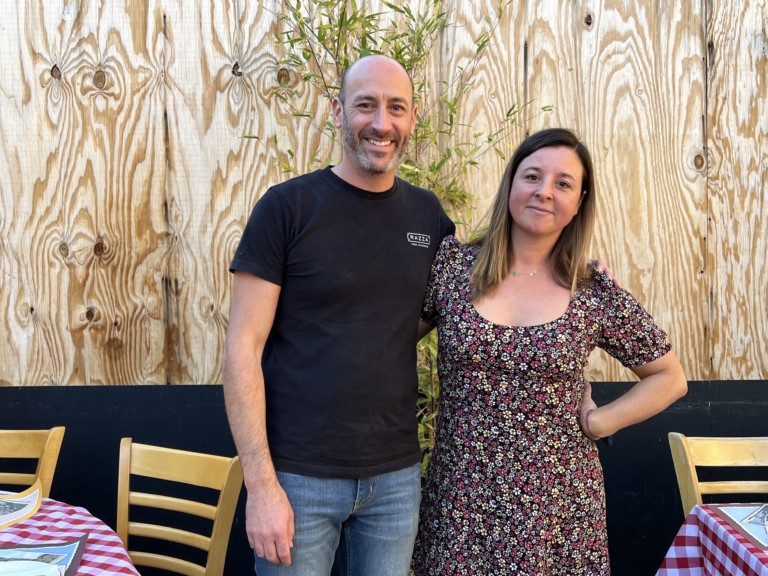
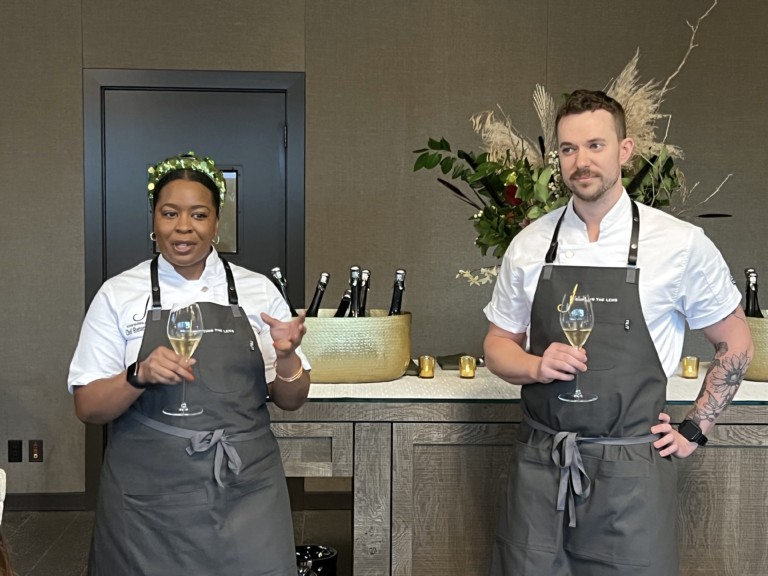




Leave a Comment